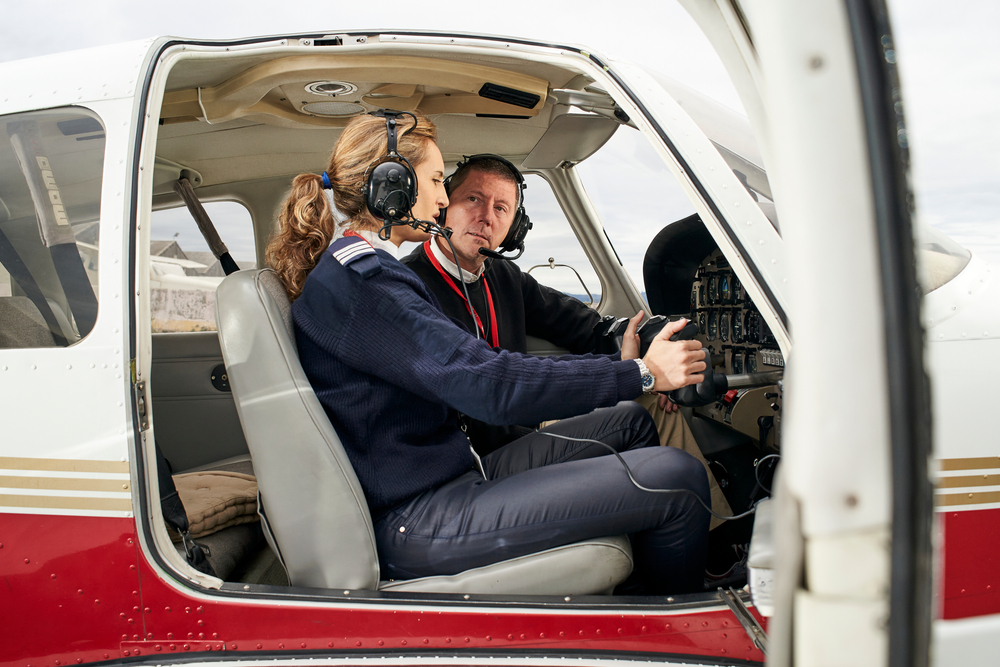Every pilot needs an aviation medical certificate to exercise pilot privileges, but the class required depends on what you fly and how you fly it. The FAA issues three classes of medical certificates, each with different standards and limitations. Understanding which certificate you need saves time and ensures you meet the appropriate health standards for your aviation activities.

Quick Answer: Class 1 medicals are required for airline transport pilots, valid for 12 months under age 40. Class 2 certificates serve commercial pilots, valid for 12 months for commercial operations. Class 3 medicals cover private and recreational pilots, valid for 60 months under age 40. BasicMed allows certain pilots to use their driver’s license medical standard instead. Class 1 has the strictest vision, hearing, and cardiovascular requirements.
Class 1 Medical Certificate Requirements
Class 1 medicals are mandatory for all airline transport pilot operations. The examination includes extensive cardiovascular testing with electrocardiograms required at ages 35 and annually after age 40. Vision must be correctable to 20/20 in each eye. Hearing tests use pure tone audiometry measuring specific frequencies. Blood pressure cannot exceed 155/95.
The Aviation Medical Examiner (AME) reviews detailed medical history including all medications. Mental health conditions require special issuance consideration. Previous surgeries need documentation and recovery verification. The exam costs $150-$300 depending on location. Results process within days for straightforward cases, but deferrals to the FAA can take months.
Class 2 Medical Certificate Standards
Commercial pilots need Class 2 medicals for paid flying operations. Vision requirements are slightly relaxed—20/20 correctable but 20/40 uncorrected is acceptable. Hearing tests allow up to 30 dB loss at lower frequencies. EKGs aren’t required unless the AME identifies concerns. Blood pressure standards match Class 1 at 155/95 maximum.
The exam covers the same systems as Class 1 but with less stringent standards. Pilots can operate commercially for 12 months from the exam date. After 12 months, the certificate downgrades to Class 3 privileges. Common medications like antidepressants may be acceptable with proper documentation. The exam typically costs $100-$200.
Class 3 Medical Certificate Details
Private pilots use Class 3 medicals, the least restrictive certification. Vision must be 20/40 correctable in each eye. Color vision testing ensures pilots can distinguish aviation signal colors. Hearing tests are less stringent—conversational voice at 6 feet. Blood pressure standards remain at 155/95.
The certificate lasts 60 months for pilots under 40, and 24 months for pilots 40 and older. No EKG is required at any age unless cardiovascular concerns exist. The simpler exam costs $75-$150. Most AMEs can issue Class 3 certificates immediately without FAA review unless conditions require special issuance.
BasicMed Alternative
BasicMed allows pilots to fly without an FAA medical certificate using their state driver’s license medical standard. Requirements include holding a valid driver’s license and having held an FAA medical certificate after July 14, 2006. Aircraft are limited to 6,000 pounds maximum takeoff weight with 6 occupants maximum.
Pilots must complete an online medical education course every 24 months and get a physical exam from any state-licensed physician every 48 months. The physician uses a BasicMed checklist but doesn’t need AME certification. Operations are limited to below 18,000 feet and 250 knots. No compensation or commercial operations are allowed. BasicMed costs significantly less than traditional medicals—often under $100 for the doctor visit.
Special Issuance Process
Certain medical conditions require FAA special issuance authorization. Common conditions include diabetes requiring medication, cardiovascular disease, mental health treatment, and neurological conditions. The AME defers the application to the FAA Aerospace Medical Certification Division in Oklahoma City.
Special issuance processing takes 60-90 days typically, sometimes longer for complex cases. The FAA requests additional medical records and specialist evaluations. Once issued, special issuance certificates may require annual renewals with updated documentation. Some conditions receive permanent special issuance after demonstrating stability. Working with a senior AME experienced in difficult cases improves success rates.
Common Disqualifying Conditions
Certain conditions automatically disqualify pilots unless successfully treated and documented. Psychosis, bipolar disorder, and severe personality disorders are permanently disqualifying. Recent substance dependence requires documented recovery and abstinence. Epilepsy after a certain age is disqualifying unless seizure-free for extended periods.
Coronary artery disease requires extensive cardiac workup and clearance. Insulin-dependent diabetes was disqualifying but now has a special issuance pathway. Sleep apnea requires treatment documentation and compliance with CPAP therapy. Many disqualifying conditions have paths to certification with proper medical management and documentation.
Choosing the Right Certificate Class
Apply for the highest class you might need in the future. A Class 1 medical automatically provides Class 2 and Class 3 privileges. If you’re considering commercial flying eventually, get a Class 2 even as a student pilot. This identifies potential medical issues early before investing heavily in training.
Consider BasicMed if you have conditions complicating FAA certification but can safely operate under the BasicMed rules. Pilots with special issuance requirements save money and hassle with BasicMed. However, BasicMed doesn’t work for international flying or operations outside its limitations. Consult an AME before your exam to discuss any medical concerns—they can advise on documentation needed for smooth certification.
Join the Aircraft Insider Community
Get exclusive backcountry flying tips, aircraft reviews, and Western aviation destinations delivered to your inbox.
✈️ No spam, ever. Unsubscribe anytime. Privacy respected.




Leave a Reply